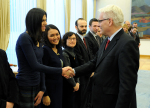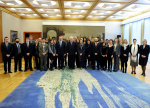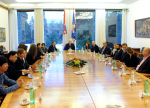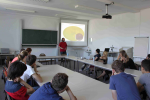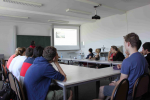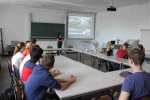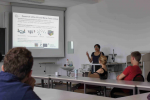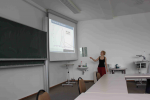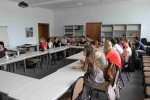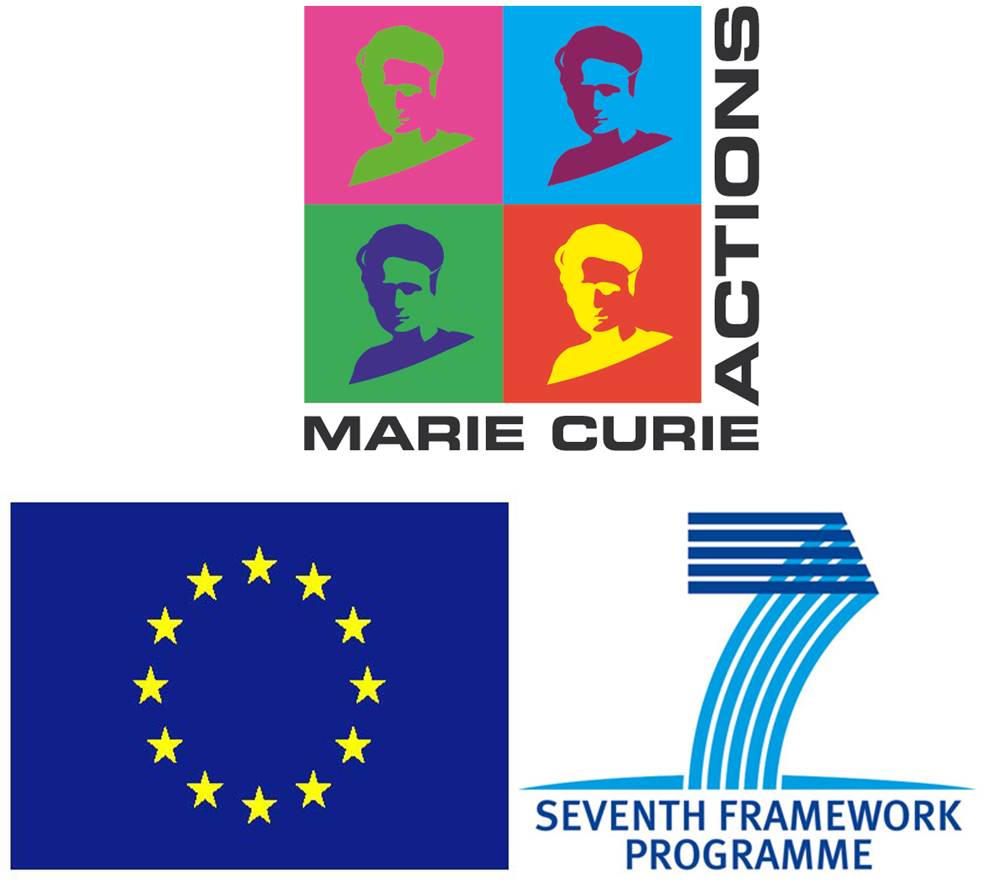Marie Curie Outreach Activities
Introduction of EDA-EMERGE at the 6th EFOR SEMINAR
Petra Spirhanzlova from WatchFrog introduced the project EDA-EMERGE to participants of the ![]()
![]() EFOR SEMINAR, which was held from 9th to 10th of March 2015 in Paris, France. She gave a 30 minutes presentation on goals and activities of the project as well as the approach of an effect-directed analysis (EDA) in general. Finally, she highlighted the thyroid assay used in WatchFrog and showed results underlining the importance of this assay for the EDA approach.
EFOR SEMINAR, which was held from 9th to 10th of March 2015 in Paris, France. She gave a 30 minutes presentation on goals and activities of the project as well as the approach of an effect-directed analysis (EDA) in general. Finally, she highlighted the thyroid assay used in WatchFrog and showed results underlining the importance of this assay for the EDA approach.
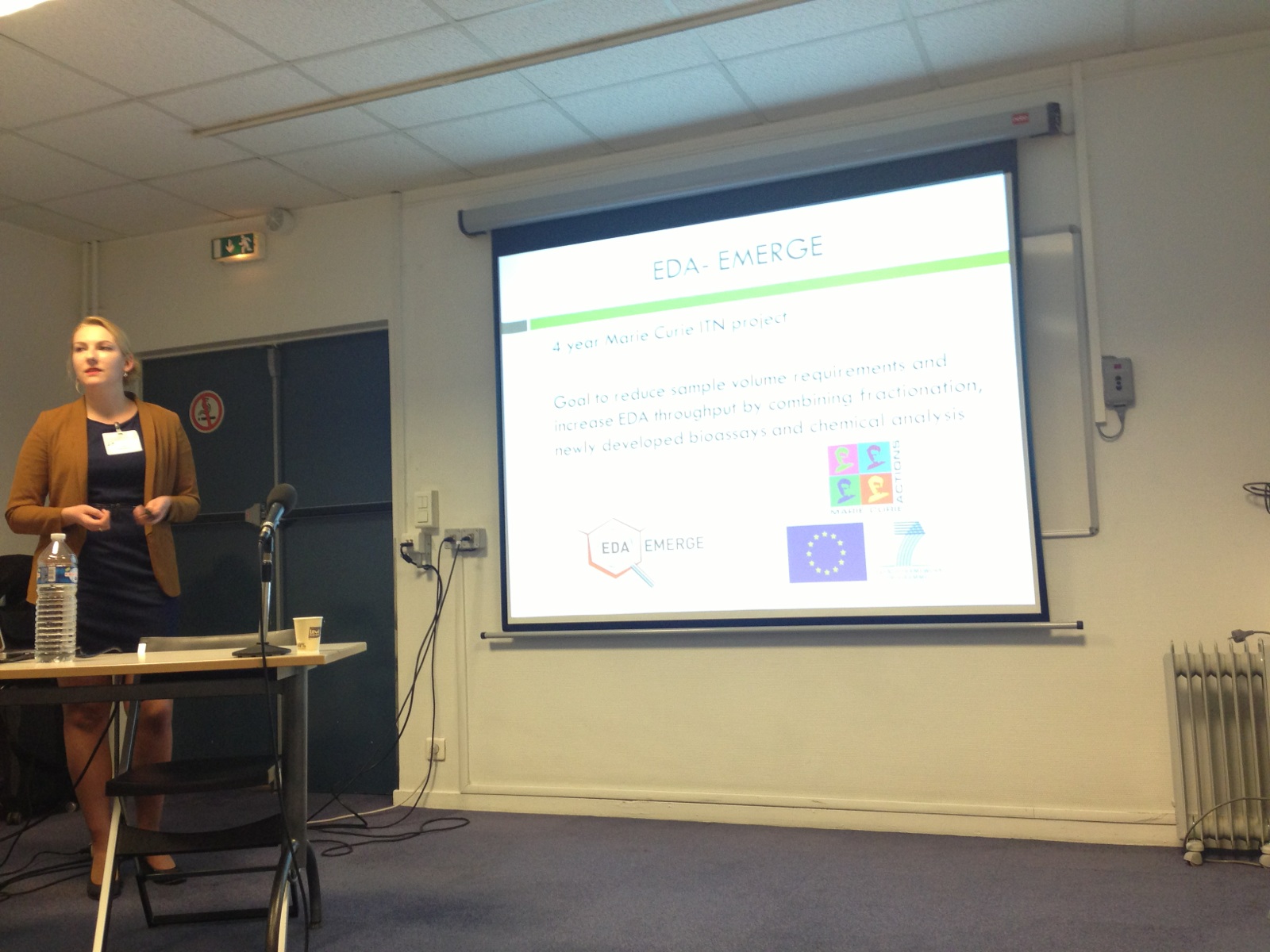
EDA-EMERGE PhD student presented at the meeting of WFD CIS Working Group Chemicals of the European Commission in Brussels.
Carolina Di Paolo has participated the 25th and 26th of February 2015 in Brussels to the working group (WG) Chemicals Meeting of the Common Implementation Strategy of the Water Framework Directive (WFD).
The WG Chemicals, coordinated by the DG Environment of the European Commission is represented by all the Member States of the European Union, Switzerland, different stakeholders (industrial and environmental association) and the Joint Research Centre (JRC). The WG has the objective to address the monitoring requirements and the methodological approaches in relation to the chemical status of surface waterbodies of the European Union with a particular focus on the priority substances. In this context the WG elaborates technical guidance and report in relation to different aspects such as the methodology for the prioritization of the substances, watch-list substances sampling, biota monitoring and assessment, effect-based monitoring and other issues related to the chemical quality of water-bodies.
In the context of the “effect-based” session of the meeting Carolina has made a presentation about “Effect-based tools for the assessment of priority and emerging contaminants: The EDA-EMERGE European Project”. The content of the presentation was related to the use of effect-based tools in the WFD context and to the EDA-Emerge project with specific case studies related to the EDA approach and to the use of bioassays for regulatory levels in relation to the current list of the priority substances. The presentation has generated fruitful discussions among the participants and questions regarding the possible role of EDA and the use of bioassays in the context of the WFD have been clarified.
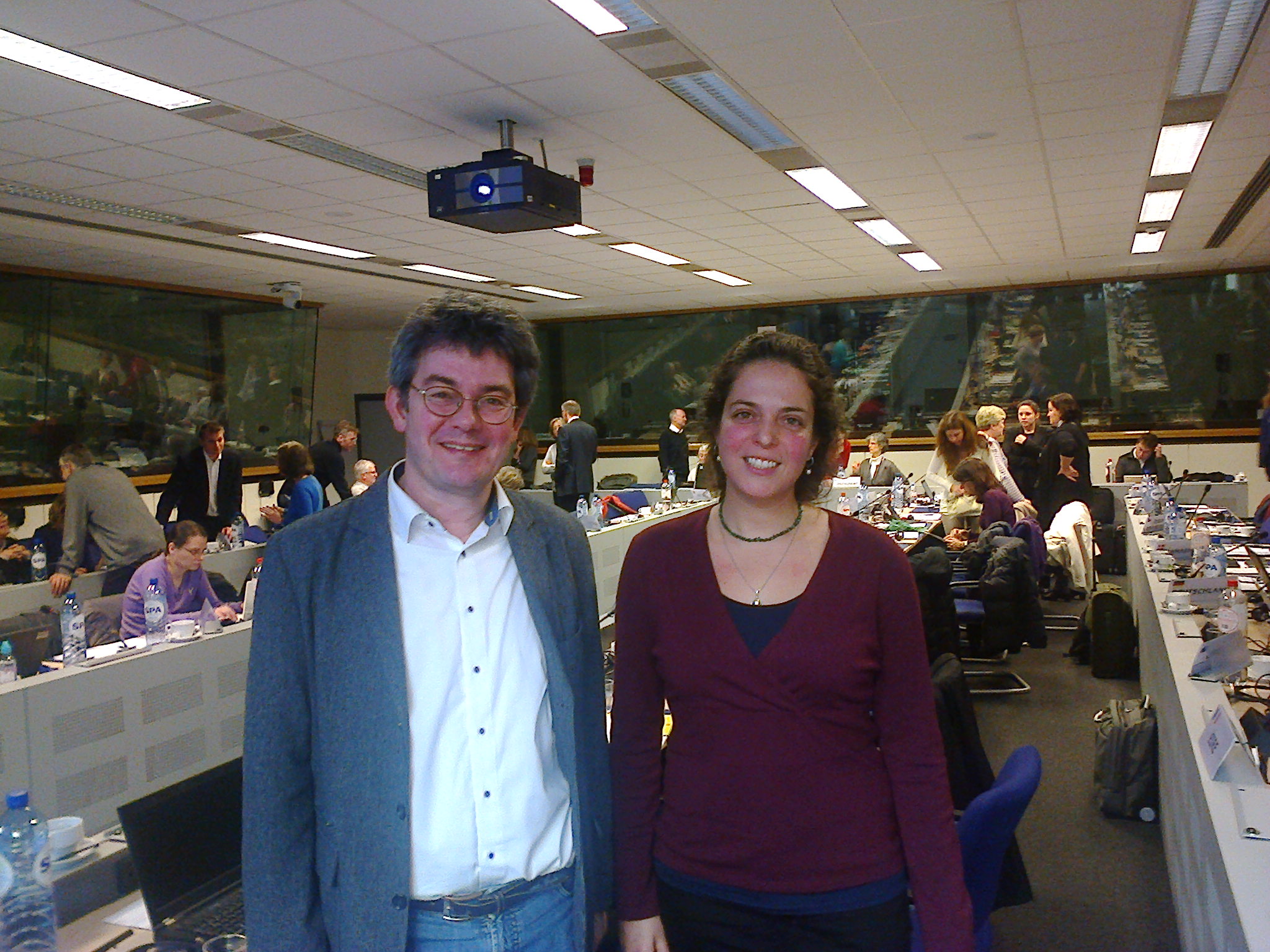
Carolina Di Paolo and Prof. Henner Hollert at the WG Chemicals Meeting-Water Framework Directive
Organized by Mario Carere (ISS) and Carolina Di Paolo (RWTH Aachen).
WatchFrog was presented in the TECAN Journal 2/2014 for Life Sciences and Partnering Business.
In the article “Looking out for the environment”, the use of an Infinite® F200 PRO microplate reader to screen aquatic model organisms was highlighted. Andrew Tindall mentioned EDA-EMERGE and emphasised the work of Petra Spirhanzlova (ESR 3), who successfully reduced the time taken to scan one 96-well plate from 40 minutes to only seven, improving the throughput of this test considerably.
![]()
![]() Link to article (page 24-25)
Link to article (page 24-25)
Science Fair
Jennifer Schollee (PhD fellow at EAWAG) participated in the Scientifica conference in Zürich, together with the Environmental Chemistry group at ETH Zürich, by manning a booth at the conference and discussed EDA-EMERGE research with the interested public.
The Scientifica conference was a large public science day meant to showcase current research at ETH and University of Zürich.
More information about the event can be found at: ![]()
![]() http://www.scientifica.ch/.
http://www.scientifica.ch/.
The outreach event focused on discussing the fate of pollutants in natural waters as well as explaining the interconnectivity of the modern day water cycle.
The strategy was based on three interactive aspects to facilitate discussion and demonstrate some basic concepts. The first activity showed people some of the common pharmaceuticals and personal care products that they may use and the concentrations of these compounds measured in Swiss waters. The second activity was a model of a WWTP to demonstrate the elimination of certain compounds during different treatment steps and the possibility of some compounds leaving the WWTP in the effluent and reaching receiving waters. The third experiment was a light box which showed photolysis in action through degradation of a dye.
Additionally, Jennifer explained her own research and the work of the broader EDA-EMERGE project (both in German and English) whilst also discussing some general water quality principles. Moreover a brochure introducing and detailing EDA-EMERGE activities within the broader context of the Marie Curie FP7 programme was prepared by Jennifer and handed out as flyers to the general public.
Organized by Jennifer Schollee and the University of Zürich on 1.09.2013.
Science Slam Contest
Zuzana Rábová, PhD fellow at EI and the Masaryk University in Brno, Czech Republic, participated in the Science Slam contest, which is an event to popularize science and transfer scientific knowledge to the wider public and to also entertain the audience in an unusual way.
The contest began on 12th June 2013, following similar events in Vienna, Berlin or other university cities. The contestants presented their research theme and its importance within 6 minutes.
Effect directed analysis was presented in a performance called “Looking for poisons in a bucket of water” by Zuzana Rábová and her colleague Anita Érseková. The EDA workflow was explained using brown contaminated river water (strong black tea in a bucket) and its fractions (coloured juices in little liquor cups). The overall importance and need of the EDA approach for complex mixture of water micropollutants was emphasized.
Pictures and information to the contest can be found here:
![]()
![]() http://scienceslam.muni.cz/homepage/slam-one
http://scienceslam.muni.cz/homepage/slam-one
A video of the EDA performance to be found here:
Organized by Zuzana Rábová (EI) and the Masaryk University in Brno, Czech Republic.
Marie Curie Outreach Event - Croatia
Sanja Koprivica (PhD fellow at the IRB in Croatia) was invited by the President of the Republic of Croatia, Mr Ivo Josipović, together with other foreign researchers who work at Croatian scientific institutions, to his office. The delegation of the Croatian Agency for Mobility and EU Programmes and the representatives of the Ministry of Science, Education and sports also attended the event.
One of the topics discussed were the results and future plans of the EURAXESS Service Centre which is an integral part of the Agency for Mobility and EU Programmes. The EURAXESS programme proved to be an important link in facilitating and increasing the mobility of researchers and has contributed to international scientific cooperation.
At the event, Sanja introduced herself as a Marie Curie fellow, detailing her activities, the benefits of the Marie Curie fellowship and shared her experience within the EDA-EMERGE network with other researchers.
Marie Curie Ambassadors - Leipzig, Germany
Presentation to the Leipzig International School
A group of 16 highly motivated grade 11 school pupils and their science teachers from the ![]()
![]() Leipzig International School were invited to a presentation by Marie Curie Fellows at the UFZ. The presentation entailed an introduction to eda-emerge and an overview of effect directed analysis by the coordinator, Werner Brack. This was followed by presentations by Meng Hu and Melis Muz related to their respective academic background, career path, PhD research, fundamental concepts of analytical chromatography techniques, chemical structure elucidation methods and their experiences as Marie Curie PhD fellows.
Leipzig International School were invited to a presentation by Marie Curie Fellows at the UFZ. The presentation entailed an introduction to eda-emerge and an overview of effect directed analysis by the coordinator, Werner Brack. This was followed by presentations by Meng Hu and Melis Muz related to their respective academic background, career path, PhD research, fundamental concepts of analytical chromatography techniques, chemical structure elucidation methods and their experiences as Marie Curie PhD fellows.
EDA-EMERGE partner institutes, their ESRs and their scientific expertise were also introduced and examples of networking events, training courses and publications were detailed. Additionally, the typical working day of an environmental scientist was highlighted and the path to becoming a researcher was explained. Public and private sector career options for analytical chemistry graduates were also outlined and the school teachers were also able to link the structure of the research outline component of the Marie Curie presentation to the school's requisite essay structures of each school pupil as part of their International Baccalaureate requirements.
The presentations were followed by a comprehensive tour of the department of ![]()
![]() effect directed analysis laboratories and a demonstration/explanation of the advanced analytical and sampling instrumentation available.
effect directed analysis laboratories and a demonstration/explanation of the advanced analytical and sampling instrumentation available.
Marie Curie Outreach participants at the UFZ
